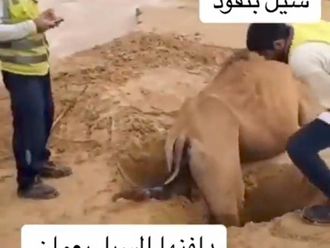Beirut: Although Oman denied a Reuters report that it sought multibillion dollar deposits in its central bank as a quid pro quo to join the Islamic Military Alliance to Fight Terrorism (IMAFT), a full-scale geo-strategic reassessment was more likely the reason for the latest Omani permutations.
Oman announced it was joining in late December, making it the 41st member of the alliance. It said its membership signalled “a new chapter in regional and Muslim unity”.
While Oman is experiencing an economic slump due to the drop in oil prices like other Gulf countries, the more probable reason for joining the alliance has more to do with Donald Trump’s upcoming US presidency.
Trump has openly stated his displeasure with the Iran nuclear deal, which Oman played a key role in brokering and the general sentiment in political circles is that Trump will be much more anti-Iran than the outgoing Barack Obama administration.
While Oman never gave a clear reason why it did not join the alliance right away, observers believe it could be linked to the important role it was playing in helping the US broker the deal.
The next White House administration is expected to develop far closer contacts with GCC governments.
This does not necessarily mean that Washington will abandon Iran or cancel the 2015 agreement, but that Trump’s preferences are not pro-Iranian — at least in the short term.
Moreover, and while it is too early to know for sure, Secretary of State Rex W. Tillerson was likely to look favourably to improved US-GCC ties, something that Oman does not want to be left out of.
Muscat is thus amply aware of potential regional transformations and, inasmuch as it is still an Arab country and a founding member of the GCC, it will not isolate itself from its own family of nations.
To be sure, the Reuters report provided ample economic justifications for the alleged deposits although there has been no official confirmation that Oman has made such a request.
The Sultanate has made similar financial requests in the past in order to offset the devaluation of its currency during economic slumps. So, if in fact the request was made, it is actually not out of the ordinary.












